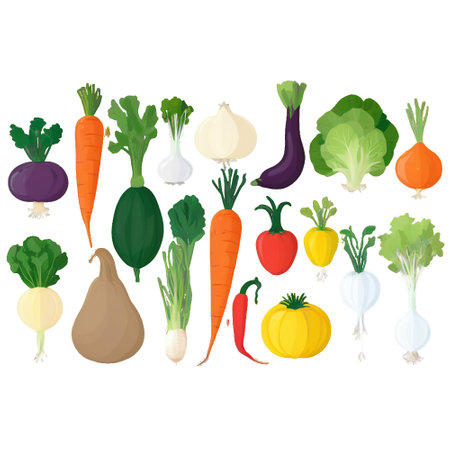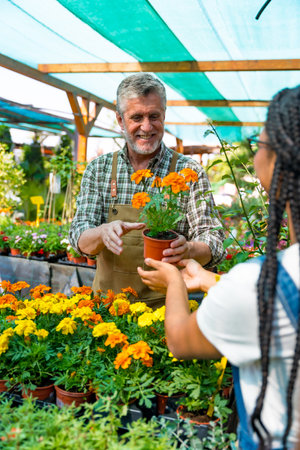Introduction to Traditional British Outdoor Activities
In the heart of British culture, outdoor activities such as gardening, tending to allotments, and enjoying local green spaces hold a special place—especially among older adults. These time-honoured pursuits are far more than pastimes; they reflect a deep-rooted connection to nature and community that has shaped generations. Across the UK, you’ll find people relishing the simple pleasures of digging in the soil, cultivating seasonal produce, or sharing friendly conversation over a patch of runner beans. Allotments, in particular, serve as cherished sanctuaries where people nurture both plants and friendships. Whether it’s the joy of seeing the first daffodils bloom or the satisfaction of harvesting homegrown potatoes, these traditional outdoor activities are woven into the fabric of British life. For many older Britons, they offer not only physical exercise but also a sense of purpose and belonging—key ingredients for healthy ageing in an ever-changing world.
2. The Allotment Tradition in the UK
The tradition of allotments holds a cherished place in British culture, particularly when it comes to fostering healthy ageing. Allotments first gained popularity during the 19th century, as industrialisation swept through Britain and urban populations grew. At their core, these small plots of land provided working-class families with the means to grow their own food, offering both sustenance and respite from crowded city living. Today, allotments remain woven into the social fabric of many communities across the UK.
The Historical Roots of British Allotments
Allotments were formally established by the Enclosure Acts and later expanded during both World Wars when Dig for Victory campaigns encouraged people to grow their own produce. Over time, these plots evolved beyond necessity, becoming spaces for relaxation and connection with nature—benefits that particularly support older adults seeking an active yet peaceful lifestyle.
Community Value and Social Benefits
For the ageing population, allotments offer more than just fresh fruit and vegetables. They serve as communal hubs where people can share gardening tips, celebrate harvest festivals, and enjoy intergenerational activities. The supportive network found within allotment communities helps reduce loneliness and fosters a sense of belonging.
Key Benefits of Allotments for Older Adults
| Benefit | Description |
|---|---|
| Physical Activity | Gentle exercise from digging, planting, and harvesting supports mobility and overall health. |
| Mental Wellbeing | Time outdoors and caring for plants boosts mood and reduces stress. |
| Social Interaction | Opportunities to connect with neighbours and make new friends in a supportive environment. |
| Sustainable Living | Growing your own food reduces carbon footprint and promotes eco-friendly habits. |
The Role of Allotments in Sustainable Living
Allotments play a crucial role in encouraging sustainable practices among older Britons. They provide a practical way to reduce household waste through composting, promote seasonal eating, and decrease reliance on supermarket produce. In this way, allotment holders contribute positively to both their own wellbeing and the health of the planet—all while continuing beloved traditions that have stood the test of time in British outdoor culture.

3. Benefits of Gardening for Mind and Body
Gardening is deeply woven into the fabric of British life, and its health benefits extend far beyond a well-kept allotment or a blooming back garden. Engaging with the outdoors offers a gentle, sustainable way to support healthy ageing, especially when considering the physical, mental, and emotional rewards it brings.
Physical Wellbeing: Gentle Exercise in Every Season
One of the most tangible advantages of gardening is its role as a form of gentle exercise. Digging, planting, weeding, and harvesting all contribute to improved mobility, flexibility, and strength—without the need for a gym membership. For older adults, these regular activities help maintain joint health and cardiovascular fitness, while the fresh British air and ever-changing weather add an invigorating element to each session.
Mental Health: Stress Reduction Through Nature
The therapeutic effects of spending time among plants are well-documented. Tending to an allotment or garden provides a mindful escape from daily worries. The simple act of nurturing seedlings or watching birds flutter by can reduce stress levels and foster a sense of calm. In fact, many Britons find that even short spells outdoors can clear the mind and boost mood—especially during the lighter spring and summer months.
Emotional Resilience: Connection and Purpose
Beyond the physical and mental gains, gardening offers profound emotional benefits. The sense of achievement that comes from growing your own veg or creating a vibrant flowerbed is deeply rewarding. This connection to nature nurtures patience and resilience—qualities that are invaluable for healthy ageing. Many people also find that sharing surplus produce with neighbours or joining local allotment societies builds social bonds and combats loneliness, making gardening both a solitary pleasure and a community affair.
Therapeutic Value: A Tradition Rooted in Wellbeing
It’s no wonder that gardening remains one of Britain’s favourite pastimes for all ages. Whether tending roses along a front path or cultivating rows of runner beans on an allotment plot, the activity offers restorative benefits for mind and body alike. Embracing these traditional outdoor pursuits helps ensure not only a healthier lifestyle but also a balanced, fulfilling approach to later life.
4. Outdoor Activities Beyond the Garden Fence
While gardening and tending to allotments are classic British pursuits, there is a rich tapestry of outdoor activities woven into UK culture that goes far beyond the garden gate. These traditional activities not only offer physical benefits but also foster a strong sense of community and emotional wellbeing, making them ideal for healthy ageing.
Rambling: The Joy of Walking in Nature
Rambling—an affectionate British term for countryside walking—is more than just exercise; it’s a cherished social activity that connects people with the picturesque landscapes of the UK. Whether it’s a gentle stroll along a coastal path or a more challenging hike across the moors, rambling provides opportunities for reflection, conversation, and immersion in nature. Many local rambling clubs welcome members of all ages, encouraging regular walks that support both physical health and mental clarity.
Joining Local Nature Groups
Becoming part of a local nature group or wildlife society is another beloved tradition. These groups organise birdwatching excursions, conservation projects, and seasonal outings that help participants stay active while learning about Britain’s natural heritage. Engaging in such activities encourages lifelong learning, social connection, and a deeper appreciation for the environment—key factors in positive ageing.
Village Events and Community Festivals
The British calendar is peppered with village fetes, open-air markets, and seasonal fairs. Participating in these events—whether as an organiser or attendee—fosters intergenerational connections and promotes a vibrant community spirit. From Morris dancing to flower shows, these gatherings celebrate local traditions and provide numerous ways to stay physically active while having fun.
Comparing Popular Outdoor Activities for Wellbeing
| Activity | Main Benefits | Social Aspect |
|---|---|---|
| Rambling | Improved cardiovascular health, stress reduction | Group walks and shared routes encourage friendships |
| Nature Groups | Lifelong learning, environmental stewardship | Regular meetings build lasting bonds |
| Village Events | Cultural engagement, light exercise | Fosters community identity and belonging |
Embracing Outdoor Culture for Holistic Wellbeing
Engaging in these outdoor activities is not simply about staying active—it’s about nurturing the mind and spirit through meaningful connections with others and with nature. By participating in rambling clubs, joining local nature groups, or enjoying village events, older adults can enrich their lives with new experiences while supporting their overall wellbeing. This holistic approach to healthy ageing is at the heart of traditional British outdoor culture.
5. Community and Social Connection
One of the most cherished aspects of British gardening and allotment culture is the strong sense of community it nurtures. Whether you are tending a plot on an allotment site or joining a local gardening club, these traditional activities offer more than just physical benefits—they foster deep social ties and a lasting sense of belonging. In towns and villages across the UK, allotment societies act as vital hubs, bringing together people from all walks of life. These societies often organise seasonal events, seed swaps, and communal workdays, providing opportunities for older adults to form new friendships and share gardening wisdom.
Local gardening clubs also play an essential role in promoting healthy ageing. Many offer regular meetings, talks by expert horticulturists, and group visits to celebrated gardens such as Kew or RHS Wisley. This shared passion not only encourages lifelong learning but also helps combat loneliness—a key concern for many older Britons. The camaraderie built over cups of tea in the shed or during a brisk walk around the plots can be truly uplifting.
The spirit of cooperation is woven into the fabric of outdoor British life. From lending a hand with heavy lifting to swapping surplus produce, neighbours support each other in both big and small ways. This environment of mutual aid instils purpose and meaning in daily routines, making every trip to the allotment or club gathering something to look forward to. In essence, gardening and outdoor pursuits help keep both body and spirit thriving well into later life, reminding us that connection with others is just as important as connection with nature.
6. Tips for Getting Started with British Outdoor Hobbies
Dipping your toes into the world of British gardening, allotments, and outdoor pursuits can be both rewarding and enriching—especially if you’re a newcomer or looking for purposeful activity in retirement. Here’s some practical advice and local guidance to help you set out on the right foot.
Start Small and Local
If you’re new to gardening, begin with a manageable patch at home or even a few pots on your patio. Herbs like mint, rosemary, and chives are easy to grow and offer instant gratification. Visit your nearest garden centre or DIY store (such as B&Q or Homebase) for starter kits and friendly advice tailored to the British climate.
Joining an Allotment Community
Allotments are a cherished part of British culture, offering not only space to grow fruit and veg but also a welcoming community spirit. Contact your local council to enquire about available plots—the waiting list can be long in some areas, so it pays to get your name down early. Once you’ve secured a plot, introduce yourself to neighbouring plotholders; most are happy to share tips over a cuppa.
Essential Kit for Beginners
- A trusty trowel and fork
- Sturdy wellies (Wellington boots)
- Watering can or hosepipe
- Packs of seeds suited for the season—try runner beans, courgettes, or sweet peas
You’ll find most essentials at local hardware shops or through allotment society swaps.
Getting Involved in Outdoor Clubs and Groups
The UK is home to countless gardening clubs, walking groups, and conservation organisations. The Royal Horticultural Society (RHS) has regional branches that run workshops and events for all skill levels. U3A (University of the Third Age) offers hobbyist classes specifically aimed at retirees. Check noticeboards at your library or community centre for local meet-ups.
Learning from Others
Don’t hesitate to ask questions—fellow gardeners are often eager to lend advice on everything from composting techniques to dealing with slugs. Many communities host annual plant swaps or open days where you can pick up bargains and make new friends.
Enjoying the Journey
Remember, the key is to enjoy the process rather than strive for perfection. Gardening and outdoor activities are about connecting—with nature, neighbours, and yourself. Take pleasure in each small success: the first bloom, a freshly dug spud, or simply sharing stories across the allotment fence. With patience and curiosity, you’ll soon find yourself thriving alongside your garden plot.


